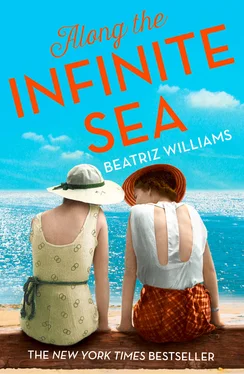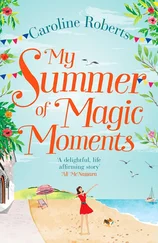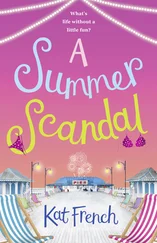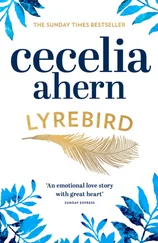“I love your library,” I said. “You have so many lovely books.”
“Yes, it is the family library, collected over many generations.”
“Your family library? Don’t you think that’s risky? Keeping it all on a ship?”
“No more risky than keeping it in our house in Germany, in times like this. When a Jew is no longer even really a citizen.”
I lifted my head. “You’re a Jew?”
“Yes. You didn’t know that?”
“I never thought about it.” I laid my head back down and studied the stars. Stefan’s fingers brushed my hand, and I brushed them back, and a complex and breathless moment later we were holding hands, studying the stars together.
“Tell me, Annabelle,” he said. “Why have you never asked me how I came to be shot in the leg, one fine summer night on the peaceful coast of France?”
“I thought you’d tell me when you trusted me. I didn’t want to ask and have you tell me it was none of my business.”
“Of course it is your business. I will tell you now. The men who shot me, they were agents of the Gestapo. You know what this is?”
“Yes, I think so. A sort of secret police, isn’t it? The Nazi police.”
“Yes. They rather resent me, you see, because instead of waiting quietly for the next law to be passed, the next column to be kicked out from under me, I am seeking to defend the country that I love, the real Germany, the one for which my father lost his eye and his jaw twenty years ago.”
“I see.”
“I will not bore you with the details of what I was doing that night. But you are in no danger from the French authorities. I want you to know that, that I have not made you some sort of fugitive. But it was necessary, you see, that the man who shot me didn’t know what became of me, or who had helped me to safety.”
“My brother.”
“Yes, de Créouville and his friends. And you.” He lifted my hand and brought it to his lips, which were warm and soft and damp with champagne.
My heart was jumping from my chest. I felt my ribs strain, trying to contain it. I opened my mouth to say something, and my tongue was so dry I could hardly shape the words.
“I’m glad,” I said, “I am proud of my brother, that he was helping you.”
“Yes, he is a good man.”
“I suppose”—I swallowed—“I suppose you’ll go on doing these things, whatever they are. You will go on putting yourself in this danger.”
He didn’t speak. We lay there in darkness, shoulders touching, hips touching, hand wound around hand. I might have drifted to sleep for a moment, because I opened my eyes to find that the stars had disappeared, and the sky had turned a shade of violet so deep it was almost charcoal. Next to me, Stefan lay so still I thought he must be asleep. I didn’t move. I was afraid to wake him.
I thought, I will remember this always, the smell of him, cigarettes and champagne and salt warmth; the strength of his hand around mine, the rhythm of his breath, the rough texture of sand beneath my head.
“It’s almost dawn,” he said softly.
“I thought you were asleep.”
“I was.”
The water slapped against the sand. A perimeter of color grew around the horizon, and Stefan sat up, still holding my hand. “The sun will be up soon,” he said. “We can’t see it yet, because of the cliffs to the east. In Venice, it is fully light.”
“I haven’t been to Venice.”
“It is beautiful, a kind of dreamy beauty, like a painting of someone’s memory. Except it smells like the devil, sometimes.” He nodded at the faint violet outline of the Fort Royal, just visible above the trees. “I have been staring at that building through my porthole, every day. Thinking about the men who were imprisoned there.”
“Yes, I noticed that book, when I brought it from the library. The Dumas, the one about the Man in the Iron Mask.”
“Except it wasn’t really an iron mask. It was velvet black, according to those who saw him. Voltaire was the one who turned it into iron, for dramatic purposes, or so one supposes.”
“Have you ever been inside?”
“No.” He paused and smiled. “Would you like to go now?”
“What, now? But it isn’t open yet.”
“Even better. We will have the place to ourselves.” He swung to his feet, a little awkwardly, and pulled me up with him. “A good thing, since you are only wearing a nightgown and my dinner jacket.”
“What about your leg?” I said breathlessly.
He shrugged. “Don’t worry about my leg anymore, Nurse. You are off duty, remember?”
We walked slowly, because of my bare feet and Stefan’s leg, and because the world around us seemed so sacred and primeval, like Eden, filling with pale new light, fragrant with pine and eucalyptus. There was a long straight allée leading directly to the fort, and we saw nobody else the entire way. “There are fisherman in the village,” Stefan said. “They are probably setting out in their boats. And there will be a lot of tourists later in the morning and the afternoon.”
“I’d rather wake up early and spend time with the fishermen. I’d rather see the place as it really is, as it used to be lived.”
“Yes, the tourists are a nuisance. Have you been to Pompeii?”
“No. I’ve never been to Italy at all.”
“We must go there someday. You would like it very much. It is as if you have walked into an ordinary old village, except you begin to walk down the street and you see how ancient it is. There are shards of old pottery littering the ground. You can pick one up and take it with you.”
“Don’t they mind?”
“They only really care about the frescoes. The frescoes are astonishing, though they are not for the faint of heart.”
“Are they violent?” I asked, thinking of the gladiators and the casual Roman lust for blood.
“No, they are profoundly erotic.”
A bird sang at us from within a tree somewhere, a melancholy whistle. The low crunch of our footsteps echoed from the woods.
“There are also casts,” Stefan said. “They found these hollows in the ash, the hardened ash, and so they had the good idea to pour plaster of Paris into these hollows, and when it dried and they chipped away the molds, there remained these exact perfect casts of the people who had died, who had been buried alive in the ash. You can see the terror in their faces. And that , my Annabelle, is when you realize that this thing was real, that it actually happened, this unthinkable thing. Each cast was a living person, two thousand years ago. These casts, they are proof. They are photographs of a precise moment, the moment of expiration. They are like the resurrection of the dead.”
“How awful.”
“It’s awful and beautiful at once. The worst was the dog, however. I could bear the sight of the people, but the dog made me weep.”
“You don’t mind the people dying, but you mind the animals?”
“Because the people knew what was happening to them. They knew Vesuvius was erupting, that the town was doomed. They couldn’t escape, but at least they knew. The dog, he had no idea. He must have thought he was being punished.”
“The people thought they were being punished, too. That the gods were punishing them.”
“Yes, but we humans are all full of sin, aren’t we? We know our mortal failings. We know our own culpability. This poor dog never knew what he had done wrong. Here we are.”
A wall appeared to our right, behind the trees. I looked up, and the dawn had broken free at last, gilding the peaks of the fort, which had somehow, in the course of our conversation, grown into a forbidding size and complexity. Ahead, the trees cleared to reveal a paved terrace.
Читать дальше












